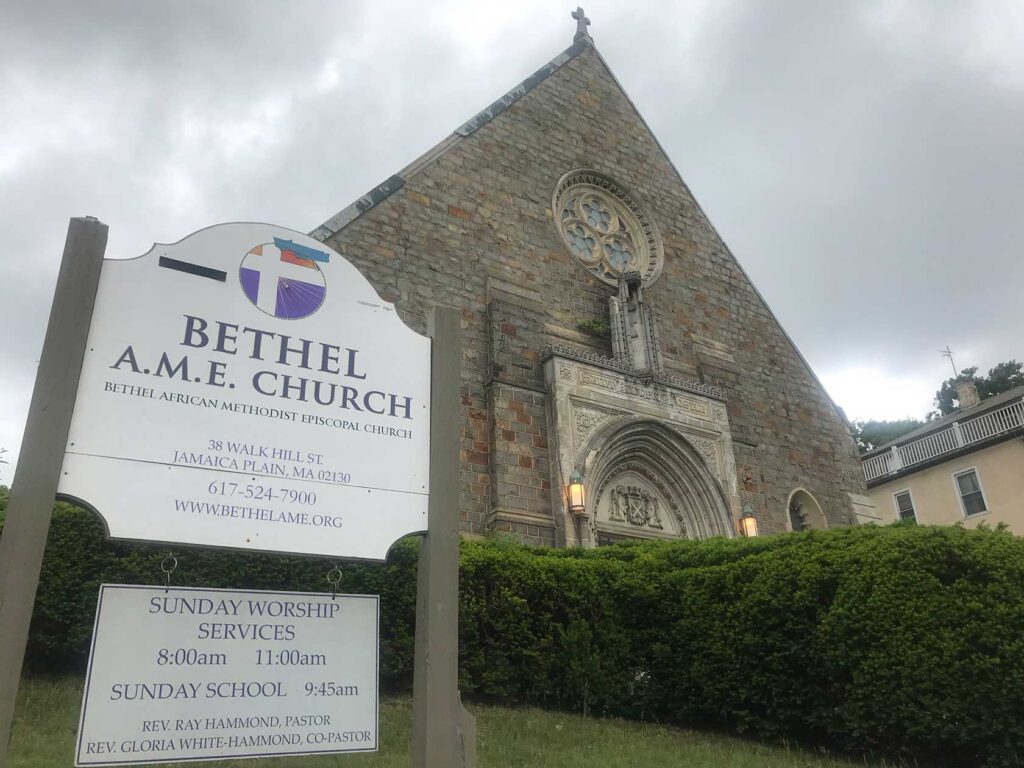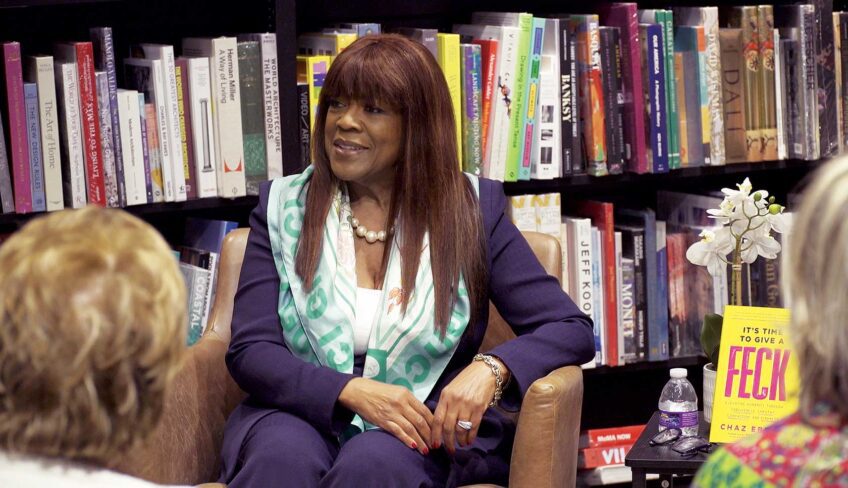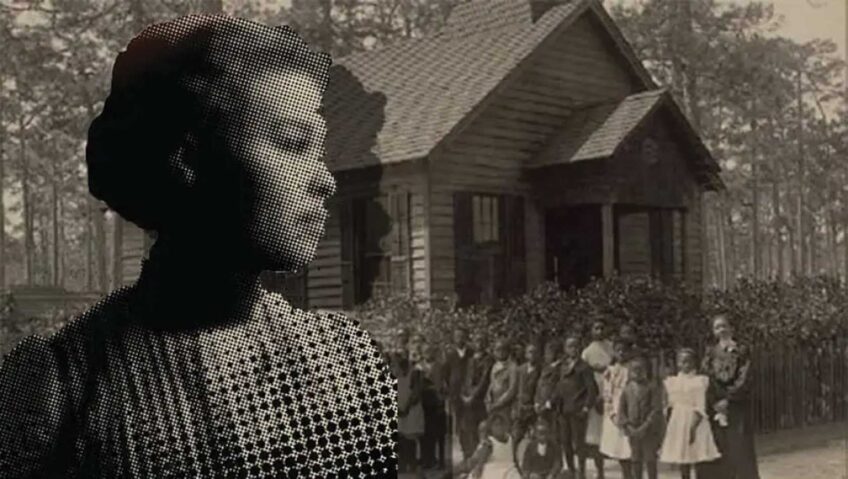
For Olanda Fontin, things are starting to look up. The 31-year-old recently obtained a work permit and is starting a new job as a homemaker — she is on her way to securing a better life for herself and her family.
On a recent Wednesday, she stood in a room in her temporary home in Jamaica Plain, scrolling through her phone as she prepared for her job orientation scheduled for the following day.
But the journey to this moment was a difficult one that saw her and her husband and their infant daughter trek through the forests of Panama to get to Mexico before entering the U.S.
Fontin is one of thousands of Haitian immigrants who have fled the country’s long-running crisis in recent years and settled in Massachusetts. While many Haitians have been deported from the U.S. — most recently 50 Haitians were transported back to the Caribbean nation on a “repatriation flight,” the New York Times reported — Fontin was fortunate to find her place in Boston, home to the third-largest Haitian population in the U.S.
At the beginning of 2023, as staff members at Bethel AME Church in Jamaica Plain witnessed Massachusetts’ migrant crisis escalate, they began discussing ways they could step in to help.
“We were trying to figure out how can we serve those coming in, especially some of the migrant communities that may not have as much support as other communities coming in,” said Daniel Saintival, the church’s director of digital engagement and a Haitian American.
Rev. Ray Hammond, the church’s co-pastor, said he and other faith-based organizations had met with Gov. Maura Healey, who asked for their help as she foresaw the buckling of the state’s shelter system.
“She said, ‘We can see this wave of migrants coming, and you can see already that it’s kind of swamping social service systems, housing system, shelter system … and we need your help in doing this,’” he recalled.
Although it wasn’t in their wheelhouse, Hammond said, they leaped into action, converting some of their little-used buildings into spaces dedicated to incoming migrant families. They reserved the church’s rectory, previously the offices, for housing and set aside the school building, once the site of the Roxbury Prep Charter School, for classes.
The Jamaica Plain community and other interfaith organizations — including Jamaica Plain Sanctuary Network, New Life Furniture Bank, and Pilgrim Church — rallied around Bethel AME Church’s efforts, providing, beds, blankets, clothing and other necessities.
In mid-November 2023, the first Haitian families arrived, having journeyed from various places including Chile and Brazil and entering the country via Texas and Florida. They were welcomed by the church’s newly formed Migrant Neighbor Initiative.
In early April, the rectory housed about eight families, each with their own dedicated bedrooms. Bethel AME Church partners with Immigrant Family Services Institute, or IFSI, which provides social services to newly arrived migrant families, including assistance with work authorization applications.
The goal of the Migrant Neighbor Initiative, Saintival said, is “to show that we can provide incoming families, new arrivals, with social services as well as a place to stay — and faith-based institutions do play a role in that. And if you can do that successfully, you can help people really transition into the society.”
In the classrooms, the families take ESL and computer classes, work on their resumes and apply for jobs. Kendy Valbrun, the initiative’s program manager, said over 200 migrants use the church’s services, including those staying at the Melnea Cass Recreational Complex shelter in Roxbury.
Many of the families who arrive just want help, Valbrun said.
“It’s not like they come here to take away anything from anybody,” he said. “They come in here because the country is literally burning … They are in a position where they don’t have anything.”
A grueling journey
From a young age, Fontin knew she wanted to leave Haiti. She grew up in Delmas, a commune in Port-au-Prince, where she was the third of seven children.
“It was not easy. There was a lot of gun violence. So I used to shake every time I hear the guns go off.” She had bad dreams and was constantly paranoid. “I was not stable,” she said. Asked if there were any opportunities for fun or joy, she replied with a resolute “No.”
One day, her nightmares materialized when gang members and thieves broke into her home and shot her father, she recalled. He recovered, and while no one else was hurt, the thieves threatened to kill their entire family because of their business, Fontin said.
So, at 25, she put her pursuit of a business associate’s degree on hold and finally decided to flee the country. That year, 2018, she obtained a Visa for Brazil and headed to South America with her husband, Jean Senel Dorlean.
There in Curitiba, the pair juggled work and school. He studied economy and administration and worked at a warehouse; she studied to be a certified nursing assistant and helped out with the elderly. She also took up studies in orthodontics, her second choice after failing a test to enter the medical field. At one point, she had made enough money to bring her brother to Brazil as well.
The situation soon changed. Fontin and Dorlean could no longer send money back home to Haiti, and as the gang violence intensified, Fontin realized she could no longer help her family. Life in Brazil was untenable. So, once again, she put her education on hold and made another move.
This time, she decided to fulfill her dream of moving to the U.S., and she, her husband and their two-year-old daughter, Snerlanda Gabriela Dorlean, who had been born in Brazil, began a grueling month-long journey from South America up to Mexico, where they hinged their hopes of entering the U.S. purely on faith, she said.
By the time Olanda and her husband decided to leave Brazil, they had saved up about $3,500. They used $3,000 to pay a mule who would transport them and a group of about 100 other people, some of them Venezuelan and Honduran, to North America. The lump sum was just enough to transport the trio; not enough to bring Fontin’s brother along.
In August 2023, with clothes, diapers and milk for the baby and one pair of clothing for the adults packed, the family began an arduous trip from Brazil to Mexico, traveling by a mix of car and foot.
“The part that was the most dangerous,” she said, “it was the walking part.” The family trekked through the Panamanian woods for five days, surviving on noodles and sleeping in tents through the night. The mountains were especially challenging, Fontin said, adding that “there’s a lot of obstacles that … if you slip, there is no way you make.” The migrant group in front of Fontin’s was robbed.
While Fontin’s cluster was fortunate not to encounter any thieves, it witnessed death. Unable to swim as the group crossed the river, some people drowned, Fontin recalled.
“I was afraid,” she said. “We got a little bit of encouragement because we were a larger group, and we prayed a lot.” Although they had an infant in hand, “God protected her first, and we also did our due diligence to protect her as well,” she said.
Not once did she think about giving up, she said.
“I was never discouraged … I had a goal. I know wherever I go, when I get there, with my faith and my capacity to do good work, I will succeed.”
Fontin admitted that she and her husband had no idea where to go once they arrived in Mexico City. But they met people on the streets who directed them to an organization providing shelter for migrants. They heard about the humanitarian parole program, which allows Cuban, Haitian, Nicaraguan and Venezuelan migrants to enter the U.S., and signed up online.
With the rest of the money they had saved, supplemented with funds borrowed from friends back in Brazil, they bought a flight to Massachusetts, a cost of $1,000 in total. Armed with newly purchased coats to withstand the New England cold, Fontin, Dorlean and their daughter landed at Logan Airport on the morning of Dec. 16, 2023.
“It was always my dream to come to the United States,” Fontin said. “So when we finally arrived, I felt a little relief.”
But thoughts of her brother in Brazil and family in Haiti still weigh on her. “My parents, they’re not stable because they have to keep being on the move. Once the gang members get closer they got to keep vacating wherever they are.”
For this reason, she avoids watching the news because it will upset her, and she needs strength to work. Instead, she enjoys listening to romantic and gospel music.
At the rectory, she said, the families had to adapt to living together. They take turns cooking family-style meals in the kitchen downstairs. Fontin has prepared du riz collé, a Haitian rice-and-beans dish, as well as chicken and sauce. The environment is welcoming, she said, but she and her husband “hope to have a good job and to move into a house or an apartment so we can be together as a family.”
Valbrun said his goal is to help secure jobs by May for all the migrants living in the rectory, and to help the families get back on their feet soon. While Dorlean, Fontin’s husband, has a work permit, the 36-year-old is still looking for a job.
The families, Pastor Hammond said, “want to work, they want to contribute to the community. They’ve lost an enormous amount, and as I said, there’s nobody I’ve talked to who wouldn’t rather be home with the people that they know, that they grew up with. But that’s just not possible right now.”
Fontin misses and loves her home country, “but the way it is, you just can’t live there,” she said. For now, she is building a home here in Boston.


![Banner [Virtual] Art Gallery](https://baystatebanner.com/wp-content/uploads/2024/05/RLJ3-150x150.jpg)


